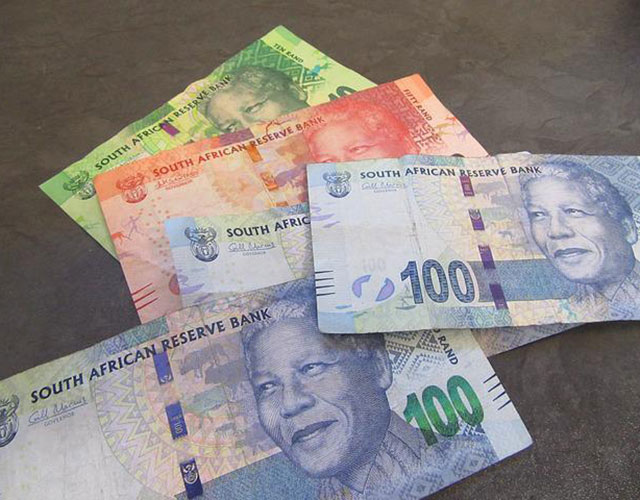Cape Town – The National Assembly has passed the Appropriation Bill for the 2025 and 2026 financial years at its first reading with 262 votes in favour, 90 against, and no abstentions.
The approval moves South Africa a step closer to finalising its R1.2 trillion national budget, despite a tense and at times tumultuous legislative process.
The Government of National Unity (GNU), comprising the ANC, DA, IFP, PA, FF+, ActionSA, ACDP, UDM, Rise Mzansi, BOSA, and GOOD, secured enough votes to clear the first of three parliamentary hurdles.
Opposition parties, led by the MK Party (51 votes), EFF (36), ATM, UAT, and NCC, rejected the bill.
The sitting was held at the Cape Town International Convention Centre (CTICC), where MPs manually voted after debating the principles of the bill and reviewing the Standing Committee on Appropriations’ report.
What the Bill entails
The Appropriation Bill is the final legislative step required to implement the national budget.
It allocates funding to government departments and institutions.
The bill will now proceed to vote-by-vote consideration of 42 departmental budgets, followed by a second reading – the final vote in the National Assembly – before it is sent to the National Council of Provinces (NCOP) for concurrence.
Should the NCOP approve the bill by 31 July, in line with the Money Bills Amendment Procedure and Related Matters Act, it will become law, allowing departments to implement their budgets.
If not passed, the bill must return to the Standing Committee for reconsideration, jeopardising service delivery due to spending limits under the Public Finance Management Act (PFMA).
GNU Unity holds – but strains emerge
While the GNU voted uniformly in favour, speeches during the debate highlighted divisions.
DA MP Andrew Bateman stressed that the DA and ANC must lead with cooperation: “We don’t need a national dialogue, we need more dialogue between the ANC and the DA.”
PA’s Ashley Sauls criticised the GNU for prioritising politics over people, while Rise Mzansi leader Songezo Zibi said endless debate had to give way to action. GOOD leader Patricia de Lille described the budget as a necessary starting point, calling for it to “go further in advancing social justice”.
The IFP, FF+, and UDM offered conditional support, with the IFP’s Nhlanhla Hadebe arguing allocations don’t go far enough to address key challenges. FF+ MP Wouter Wessels warned that funds must reach citizens – not be lost to inefficiency or corruption.
Controversy and political bargaining
The bill’s approval follows behind-the-scenes political bargaining. The DA had previously threatened to reject the bill unless President Cyril Ramaphosa dismissed former Higher Education Minister Nobuhle Nkabane, who was accused of misleading Parliament over SETA board appointments.
Her removal and the appointment of Buti Manamela and Nomusa Dube-Ncube prompted the DA’s backing.
However, tensions remain. The DA is still opposing the Department of Human Settlements’ budget, citing unresolved concerns over Minister Thembi Simelane’s alleged role in the VBS scandal.
It remains unclear if the DA will continue to back that department’s allocation in upcoming votes.
A minor procedural hiccup occurred when Al Jama-ah leader Ganief Hendricks falsely claimed both party members were present, only for it to emerge he was alone. An ethics complaint was suggested but dismissed by Deputy Speaker Annelie Lotriet as premature.
Economic and procedural urgency
Deputy Finance Minister David Masondo closed the debate by stressing the bill’s urgency, warning that failure to pass it by 31 July would block access to over half the national budget.
“This R1.2 trillion is not just a number,” Masondo said. “It represents school meals, hospital beds, social grants and infrastructure projects.”
Masondo detailed that over the medium-term, the budget allocates:
-
R400 billion for transport
-
R220 billion for energy
-
R160 billion for water and sanitation
Committee Chairperson Mmusi Maimane (BOSA) urged GNU parties to build consensus early in the budget cycle to avoid repeating the instability that plagued this year’s process.
[WATCH] Appropriations Committee Chairperson Mmusi Maimane emphasised the need to prioritise the budget while speaking during the debate on the Appropriation Bill in the National Assembly. pic.twitter.com/1g1BamEYMV
— SABC News (@SABCNews) July 23, 2025
What happens next?
The first reading approval does not conclude the budget process. Parliament must now:
-
Approve each of the 42 departmental budget votes (simple majority required).
-
Finalise the full budget schedule.
-
Conduct a second reading vote in the National Assembly.
-
Send the bill to the NCOP for concurrence by 31 July.
If adopted, departments will begin drawing down allocated funds, with Parliamentary oversight and audits by the Auditor-General to ensure compliance, efficiency, and transparency.
Follow African Insider on Facebook, X and Instagram
Picture: Pixabay
For more African news, visit Africaninsider.com
Compiled by Betha Madhomu


